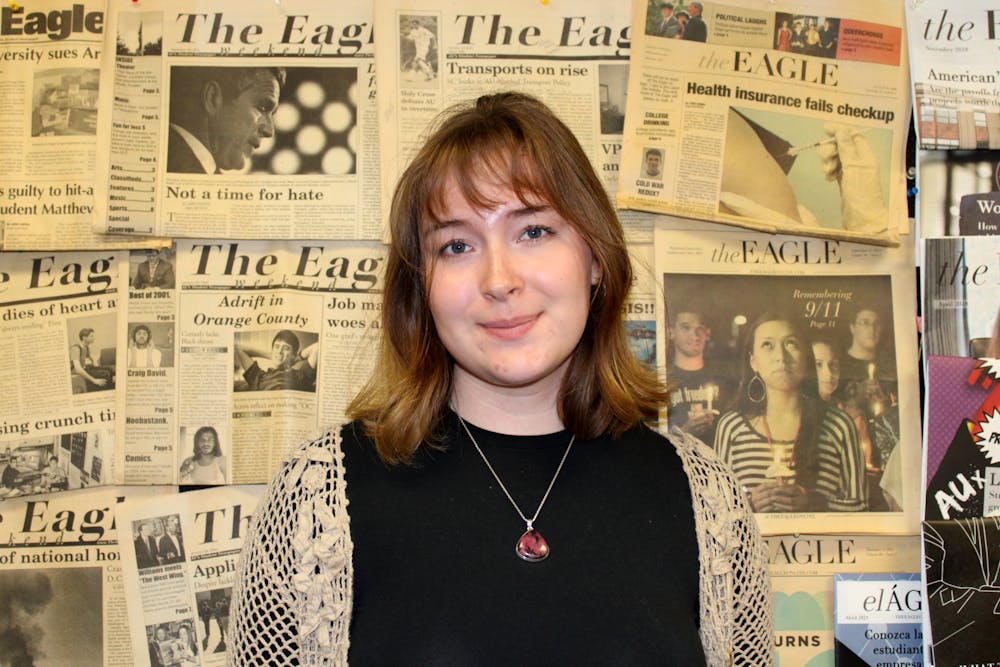From the Newsstands: This story appeared in The Eagle's December 2024 print edition. You can find the digital version here.
The following piece is an opinion and does not reflect the views of The Eagle and its staff. All opinions are edited for grammar, style and argument structure and fact-checked, but the opinions are the writer’s own.
On Oct. 4, American University notified faculty and academic affairs staff that first-year advising will no longer run after this academic year. The University will be “integrating advisors who have worked only with first-year students back into the school-based undergraduate advising teams.”
Per a June 3 email, the School of International Service Undergraduate Advising Office began team-based advising, meaning students “will no longer be assigned to a particular SIS advisor, but rather can work with any member of the advising team.” Both of these shifts mark a concerning departure from individualized advising to a depersonalized model that does not prioritize student experience. While general advice could be helpful, the experience of building a relationship with an advisor is incomparable.
A pillar of the first-year advising program is to prioritize student engagement by allowing “students to have consistency through their first semester and offers opportunities to connect with their advisor in class,” but the program undercuts this. With this shift also comes changes to AU Experience, which students previously took with their first-year advisor. Removing specialized first-year advising will lead to lower engagement with advisors, isolating students from their academics.
Restructuring SIS away from an individual model removes the same critical element of academic accessibility: developing a relationship with your advisor. Some SIS students may be lucky to keep working with their previous advisor or one staff member, but this model undermines consistency, as students may spend half of an advising meeting introducing themselves. Additionally, while current students can continue working with their old advisors, new students will be left to fend for themselves, meaning the experience for SIS students is now based on pure luck.
The lack of consistency in SIS advising is emphasized by the end of first-year advising, despite its intentions of improving reliability. The University has not communicated what advising for first-year SIS students will look like. Are incoming first-years expected to read the biographies of team members and pick? Can they meet with the same advisor all year? These questions remain unanswered.
Advising is moving towards inconsistency and depersonalization, despite the University’s claims. Personalized advising, including having an individual and first-year advisor, drives higher engagement, aids with course selection and helps students navigate their career paths. To prioritize the future of its students, American University ought to establish a reliable, individualized advising system across schools.
Julia Cooper is a junior in the School of International Service and the College of Arts and Sciences and a columnist for the Eagle.
This article was edited by Alana Parker, Rebeca Samano Arellano and Abigail Turner. Copy editing done by Emma Brown, Sabine Kanter-Huchting, Ariana Kavoossi, Ella Rousseau, Nicole Kariuki and Charlie Mennuti. Fact checked by Hannah Paisley Zoulek and Sasha Dafkova.





